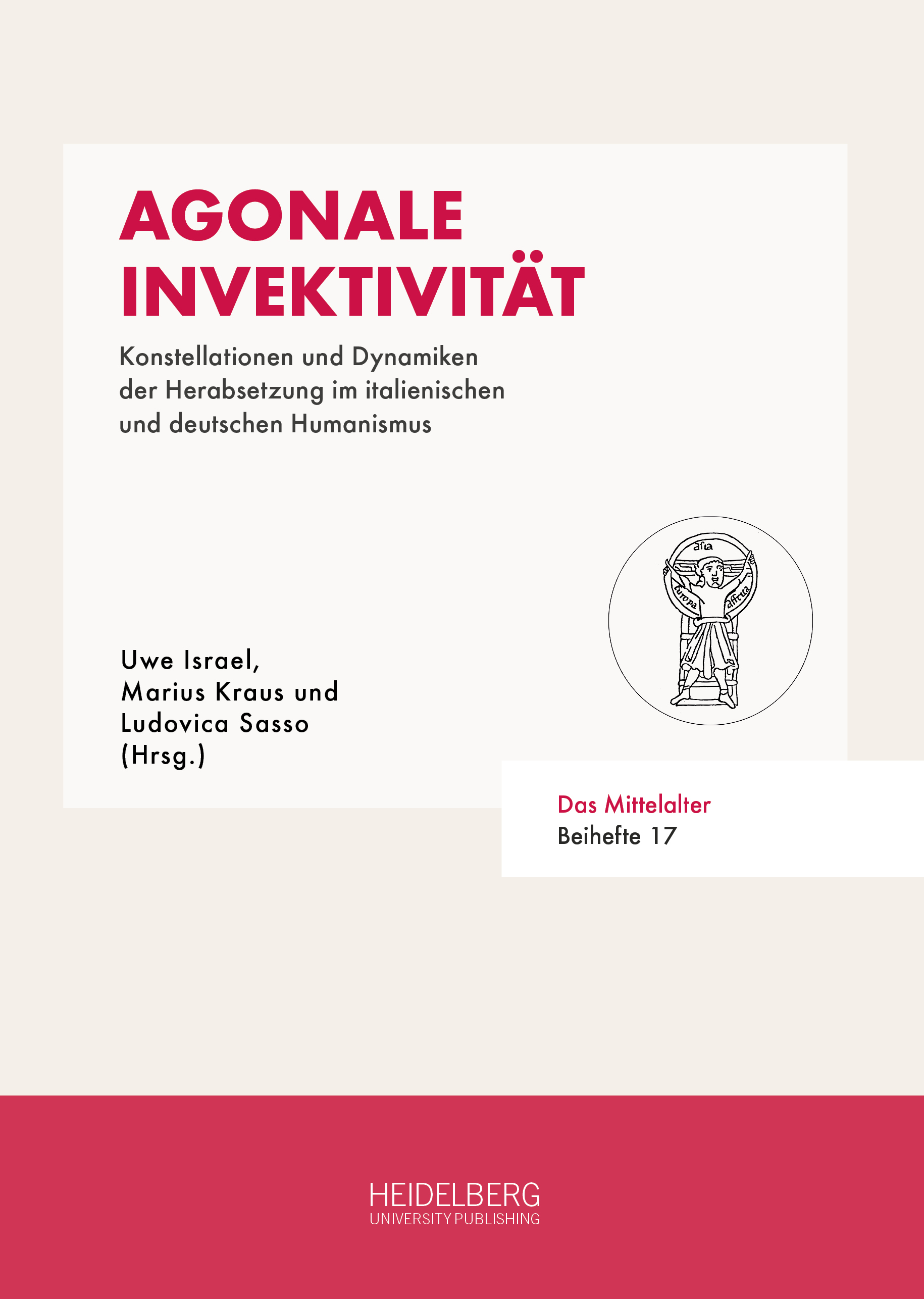How to Cite
License (Chapter)

This work is licensed under a Creative Commons Attribution-NonCommercial-ShareAlike 4.0 International License.
Identifiers (Book)
Published
Lorenzo Valla gegen Poggio Bracciolini
Die Rezeption des ‚Antidotum in Pogium‘ im 16. Jahrhundert
Abstract The ‘Antidota in Pogium’ against Poggio Bracciolini are probably Lorenzo Valla’s most vehement invectives and therefore did not always meet with the approval of contemporary readers and publishers. In the 16th century, they were sometimes censored and offered as textbooks or even regarded as a cautionary rhetorical example. In the Reformation period, although the excerpt of the ‘Secundum antidotum’ about the Inquisition’s trial of Valla was appreciated, the pamphlet in its entirety received rather limited interest. After considering the reception of the ‘Antidotum’, this article reflects on the meaning of the rhetorical vehemence in the invectives against Poggio. Scommatic language and the art of vituperatio should not be devalued by being seen as a frivolous or purely vituperative game. On the contrary, they correspond to the Vallian ideal of a free language that must never be subject to dogmatism.






